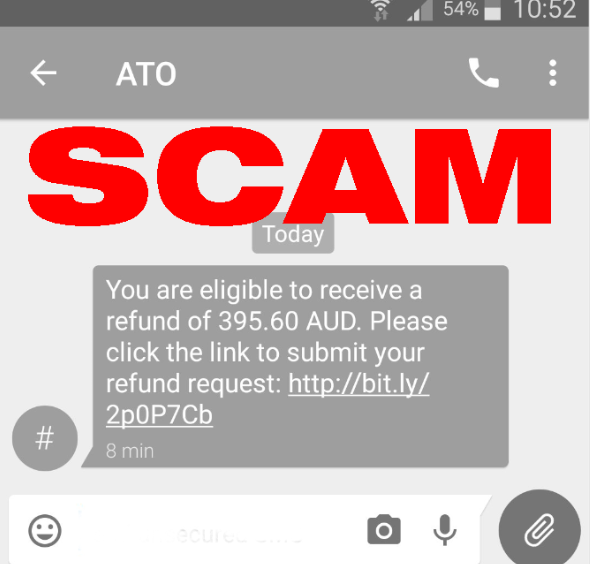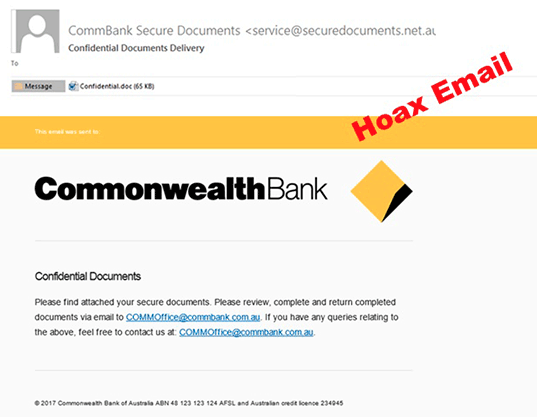The tax time scams aimed at catching you out
As tax time approaches people are being warned to be aware of sneaky scams.
The Australian Taxation Office has revealed a number of scammers are targeting unsuspecting Aussies, pretending to be from the ATO.
The ATO said on its website it saw a spike in reports of scammers sending fake text messages last month.
George, not his real name, received a text message from the ATO. Or so he thought.
The text informed him he had $275 to claim and was required to click on a link in the text.
He was asked to key in his tax file number and credit card number so the refund could be handed back to him.

The ATO said it never sent text messages that told people they were eligible for a refund, and said scams contained hyperlinks and asked for personal identification.
The ATO said it never sent text messages asking for personal details or requesting people pay a fee.
MyGov is also warning people about fake emails.
“It asks users to click on a link in the email. Do not do that – this is a scam,” myGov warned in a tweet.
People can tell it’s a scam if the domain in the email says .net rather than .gov.au.
SCAM ALERT: A fake email is being sent to some people. It asks users to click on a link in the email. Do not do that – this is a scam. More #scam info including how to protect yourself online here: https://t.co/bGVnhnuRkN pic.twitter.com/S0uUiSj9Sw
— myGov (@myGovau) March 9, 2018
The Commonwealth Bank is also warning people about hoax emails.
“Sometimes fraudsters may send you ‘hoax’ messages that appear to come from us, in order to trick you into revealing sensitive information,” it said on its website.
“That’s why it’s important to remember that we will never send you a message asking you to confirm, update or disclose your personal or banking information.”

Netflix users are also being targeted by scammers.
NSW Police said fake emails were being sent to people, asking them to update their payment details because account payments have bounced.
The email coerces Netflix users to provide their credit card details and passwords.
People are urged to look at the address the email was sent from to tell if it is legitimate or not.
The are some Stranger Things going on with this 'Netflix' email https://t.co/fchkUSkcEP pic.twitter.com/qc7LWgwEsX
— NSW Police (@nswpolice) January 10, 2018

